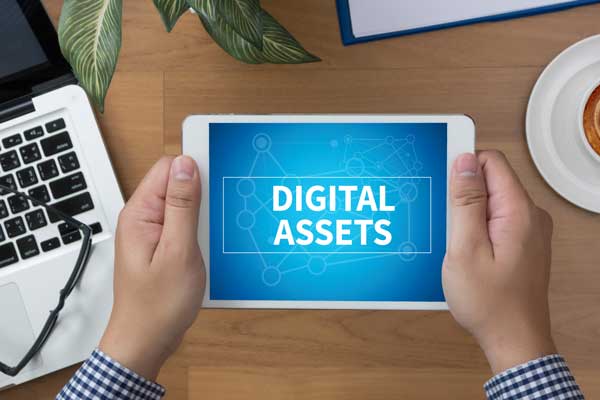
 16th Dec 2019
16th Dec 2019
 Community
Community
 By Ashley Shepherd
By Ashley Shepherd
What happens to my digital accounts when I die?
In this digital age of modern technology, much of our lives is spent online. Social media, online banking, gaming or music; the internet and electronic devices all play a crucial part. But what happens to these services when we die and what will your digital legacy be?
The following information explains what happens to our digital assets and online accounts when we die and how you can plan ahead with a digital will.
What is a digital legacy?
A digital legacy is the information you leave both online and on digital devices when you die, often referred to as a digital footprint. This includes social media accounts, photos and videos perhaps on Facebook or Instagram, gaming profiles and any interaction you have had online.
What are my digital assets?
Your digital assets are the possessions that you have either purchased or stored online or on digital devices such as a phone, tablet or laptop. This includes items of financial or sentimental value such as photos, music, videos, websites and eBooks.
Examples of digital assets
Examples of digital assets would include services accessed from third party providers like Google, Apple, Netflix, Facebook, Microsoft and Amazon. For example:
- Digital photos
- Music
- Videos
- Online games
- PDFs
- Audio files
Digital Assets - Social media accounts
Your digital assets also include social media accounts such as:
- Facebook
- Instagram
- LinkedIn
- Twitter
- Pinterest
- WhatsApp
Digital Assets - Email accounts
- Yahoo
- Hotmail
- Gmail
- AOL
- Outlook
Digital assets - online financial accounts
- Online banking
- PayPal
- Online shopping accounts
- Bitcoin
- Online utilities accounts
- Reward schemes
What happens to my digital assets and online accounts when I die?
What happens to your digital assets and online accounts when you die will depend on the service in question, as each has its own individual privacy policy. It will also depend on who actually owns the digital assets; you, your beneficiaries or the online service provider.
For example, with most digital music and audio services, you are only paying for the license to listen to the products, you haven’t bought them. This means that when you die, the license ends and so will the right to access the service.
Or perhaps you have photos or videos stored on a social media platform. Unless you have shared or saved the items beforehand, access could be lost if you die.
Some third party providers such as Facebook and Instagram now have settings that allow you to say what you would like to happen to your account when you die. However other services just remain active until the company is not informed.
Here’s some examples:
What happens to my Facebook account when I die?
Facebook gives you the option to either appoint a legacy contact to look after your memorialised account when you die, or have it deleted. Depending on the settings, a memorialised Facebook account allows family and friends to share memories and has the word ‘Remembering’ after the person’s name.
What happens to an Instagram account when someone dies?
Your Instagram account can either be memorialised when you die or deleted. A memorialised Instagram account can not be accessed by anyone else and the photos and videos will remain untouched and available for Instagram followers to view.
What happens to your email when you die?
Your email account will probably remain active when you die but this will depend on the provider. A relative should be able to close the email account however they will need proof of identity and proof of death.
What happens to your PayPal account when you die?
Your PayPal account can be closed by a third party when you die but the way this is managed will depend on whether a Will is in place.
If there is a will, PayPal will require a copy of the will and details of the executor.
If there is no Will, PayPal will need a statement confirming the administrator, their interest in the estate and relationship to the deceased.
They will also need photo id of the executor or administrator and a copy of the death certificate.
How to protect your online identity and create a digital legacy when you die
Protecting your online identify when you die and creating a digital legacy is important if you want to preserve memories and prevent upset to friends and family. The thought of losing precious family photos is bad enough but an unwanted birthday reminder by an untouched Facebook account is even worse.
So in addition to making a will, we should also plan what should happen to our digital assets when we die.
Digital wills and digital estate planning
A digital will informs friends and family what should happen to your digital assets when you die. In order to write one, you should:
- Name your digital executor who is the person responsible for taking care of your digital assets
- List all of the digital assets and online accounts you have
- Establish the end of life privacy policy for each provider and document what you want to happen
- Download photos and videos from the cloud, devices or social medial platforms and either store them on a hard drive, memory stick or share them with friends and family
The Digital Legacy Association is a great source of information on creating your digital legacy and has a free template for creating your own digital will.